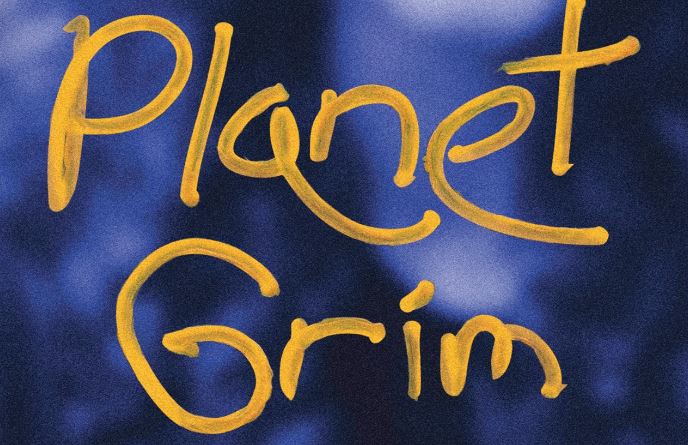Planet Grim is the debut collection from Portland author Alex Behr. Most of the collection is short stories, but there’s also one poem, some flash fiction, and a few experimental pieces.
The collection starts off with one of the stronger stories, “White Pants.” In this coming-of-age story, a young girl recalls her first period, which happened while she was on stage at a school event and wearing white pants. This seems to set the stage for many future indignities in her life and relationships.
“In tenth grade, I started cutting school. My mom had left us for a boyfriend in California, so I had to help my dad at his store. I didn’t feel sorry for myself, because my mom was barely there to begin with. Well, I hated her at first, but what good did that do. She couldn’t feel it from such a distance.”
Another story in this vein, titled “Afterword,” is an explicitly autobiographical story where Behr talks about a boy she knew named Kenny who was killed by the child murderer Arthur Goode. Behr recounts her life in the town of Falls Church, VA and how Kenny’s murder affected the people around her.
“In my hometown, no one talked about Kenny in sixth grade, seventh grade, or any other grade. The boogieman knew what boys wanted—what we all wanted—speed. Bikes. Woods. And he left us all with fear.”
Several of the stories involve dysfunctional families and relationships. However, I found the majority of them to be forgettable, despite some striking moments in them. For example, in “The Courtship of Eddie’s Father” a man lusts after his adopted son’s birth mother and hits on her at a picnic.
“I almost say to Crystal, ‘We want another Eddie. Will you donate eggs for us—and they can go inside Jenny? And it’ll be my sperm. And I’ll think of you when I jack off.’ No, I won’t use the term jack off. It’ll make me seem like an ass.”
Despite the funny and griping build up, his clumsy attempt to hit on Crystal is rather flat and uneventful. While the anti-climactic rejects makes sense, the banality being a contrast to his neurosis, his underplayed reaction is a bit disappointing.
Of the more experimental pieces, one of the stand-outs is “Sex Bomb,” a prose poem which seems to be told from the perspective of a child trying to understand sex.
“Do they have to cut open my penis parts to get the sperm out?”
Pieces like this show Behr’s knack for striking imagery that in many of the longer stories are somewhat overshadowed out by the disappointing narratives. I came away from this book with the impression that Behr works better with shorter and more poem-like forms than with traditional short stories.
One of the problems I had with the book as a whole was the way the pieces were organized into it. While this collection is clearly trying to show Behr’s range, it feels like it was arbitrarily put together. There’s one poem in this collection of mostly prose and one science fiction story where no others have any speculative fiction elements. Because of this, those pieces stick out in a distracting way.
Review copy provided
Some of the coverage you find on Cultured Vultures contains affiliate links, which provide us with small commissions based on purchases made from visiting our site.

